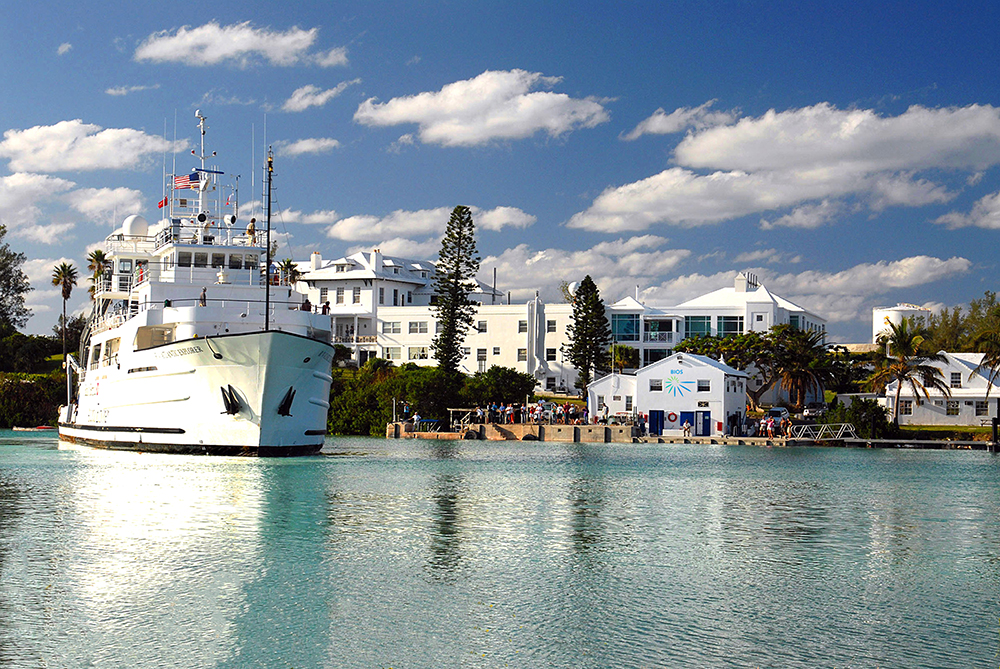Posts Tagged ‘In the News’
ASU Announces New School of Ocean Futures
Degree programs are set to launch in fall 2024
Read MoreBIOS and Executive Sponsor HSBC Announce New Climate Change Initiative
Project will provide the community with valuable information about risk, climate change, resilience, and sustainability
Read MoreBIOS Faculty Contribute to Government Report on the State of Bermuda’s Marine Waters
Document serves as a tool prior to the establishment of a marine protected area network in Bermuda
Read MoreHunt for Elusive Eel Breeding Ground Featured on CBS
Bermuda was in the spotlight over the weekend in a US TV segment that featured an island scientist and a centuries-old sea mystery
Read MoreBig News for the Study of the Ocean’s Smallest Organisms
BIOS announces role in National Science Foundation’s new Science and Technology Center
Read MoreMy internship protecting the reefs in Bermuda
A conversation with Natalia Padillo-Anthemides about her NSF-REU internship at BIOS
Read MoreKeeping a Close Eye on the Ocean—from Afar
Remote sensing technology proves effective in monitoring key regions of the world’s oceans, where upwelling and other essential ecosystem services occur.
Read MoreLong-term data show a recent acceleration in chemical and physical changes in the ocean
Two open-ocean hydrographic stations record 40 years of change in the subtropical North Atlantic Ocean
Read MoreLocal Student Selected to Attend Virtual Coding Camp
Source: Bernews
BIOS and ConnecTech Partner to Sponsor Senior School Student for Weeklong Course
What is the maximum possible number of Atlantic tropical cyclones? See the year 2005
Climate simulations and analyses of Atlantic hurricane activity indicate that the record number of tropical cyclones that occurred in 2005 (28 storms) is close to the maximum number that might occur in this region, given existing climate conditions.
Read More







